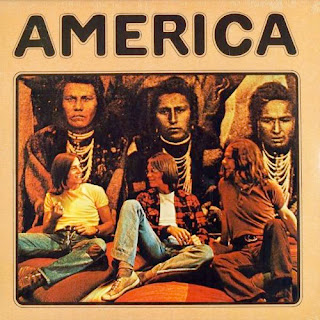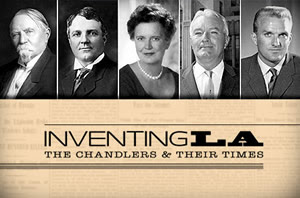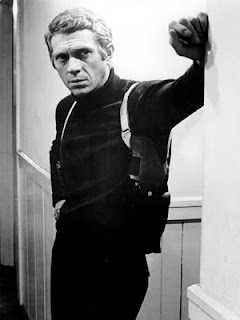Sleeping In on Sunday
I was lying in bed Sunday morning, mulling it over in my head: why should I get out of this warm, comfortable womb to go to church? It took some convincing, especially after the trumpet music from the Sunday Morning show on CBS started to play that old familiar run of notes. It was safe there in my room; no hassles, full acceptance– and nothing was being asked of me except for my coffee cup to be refilled.
You see, for the greatest part of our married life, we have been “professional Christians.” That is to say, we have been paid staff members in churches. Over the years we have served several churches in Alabama, North Carolina and Tennessee. (I had my first staff position in California as a youth minister at Lutheran church in my hometown of Fullerton at just 19 years old). I have been a professional Christian for 32 years now. Frankly, I have gotten to the point where I have been asking what other non-professional Christians have asked for years: why should I go? A salary is a great motivator to get the professionals to church, but what about those who have no attachment other than guilt, religious duty, or to keep that family burial plot in the church graveyard?
I know that George Barna and Rick Warren have amply addressed the subject of “purpose driven” and “why do we do this church thing.” Still, in 2011, after reading all of the books, attending (even leading) seminars on church, I sat there wondering why I should even roll out of bed.
I have seen my neighbors cutting their lawns on Sunday morning as I peeled out of my driveway on the way to work…um, I mean church. I may have even scoffed a time or two at their lack of religious devotion. I have seen them retrieve their morning paper in their bath robes, having no intention of getting to a local place of worship. Maybe they didn’t know the Lord; maybe they had tried church and it seemed a big waste of time–and maybe I looked at them with envy. I must admit, I have to ask the question: is going to church this morning worth it? Will I find warmth there, acceptance, grace, patience and friendship? God knows we all need it, desperately. Judgement is cheap and easier to dole out than the costly commitment to walk along side a brother or sister who is having a hard time. I know full well the tendency to avoid the time-consuming effort of helping those in need.
So, as I pulled the sheets over my shoulder and wrestled with the temptation to stay there for a while longer, I resisted and rolled out of bed. Even as a professional Christian, I lose focus on why I go to church, what brought me here in the first place, and what is it that we can do to better serve our communities for Jesus. Guilt won’t do it, and “Mama said so” won’t do it.
I need to reconnect with the force that brought me to that Christian coffee house in 1975 when I was 15. I received Christ there because I felt the love of Jesus through the people who invited me. It wasn’t a traditional religious setting, just an old house set up to host Bible studies, serve coffee and stale donuts, and to meet people’s spiritual needs. If those things aren’t present in our churches this coming Sunday, we’d do better to roll over and catch a few more minutes of sweet sleep.
America: The Band
 In 1971, as my elementary school-aged childhood was morphing into the middle school years, I started to pay attention to songs on the radio with more of an ear toward melody and lyrics. Acoustic music allowed those aspects of songs to come through loud and clear. I remember hearing “A Horse With No Name” on the radio and immediately decided that I needed to jump the back fence to the record shop behind our home in Fullerton, a suburb of Los Angeles.
In 1971, as my elementary school-aged childhood was morphing into the middle school years, I started to pay attention to songs on the radio with more of an ear toward melody and lyrics. Acoustic music allowed those aspects of songs to come through loud and clear. I remember hearing “A Horse With No Name” on the radio and immediately decided that I needed to jump the back fence to the record shop behind our home in Fullerton, a suburb of Los Angeles.
There I was introduced to the group America, and the mysterious album cover featuring the three group members, along with a backdrop photo of three 19th century Native Americans. Somehow I collected enough money to buy the album. As much as I can remember, aside from wanting to be in a band like the Beatles the year before, I wanted to follow the folk-rock music style that was then on the rise in southern California. I decided to become an acoustic guitar player and a singer-songwriter.
At first, everyone mistook America’s first single, “A Horse With No Name,” for a Neil Young song. (Soon after, I was to learn of Neil and Crosby, Still and Nash, and became a life-long fan as well). By the time America’s second album, “Homecoming,” was released, just a year later in 1972, I was hooked. Birthday money from my uncle helped me procure this obvious homage to California. “Don’t Cross the River” and “Ventura Highway” were my favorites, and the nation’s as well. Three more records would be released over as many years.
During high school, I drifted into the sounds of the Eagles and CSN&Y, away from the group America, who ironically got their start as U.S. Air Force brats living in England. (While their fathers served in the Armed Forces, the American high school students–Dan Peek, Dewey Bunnell and Gerry Beckley–met and eventually put together the band).
I have always enjoyed vocal harmony, and I give credit to the guys in America for some of my early musical education. In 1978, Dan Peek, then a new convert to Christianity, decided to leave the band. He released the single, “All Things Are Possible” as a solo artist on a Christian label in 1979. A few years later, Peek released a “Christian” version of his hit song with America, “Lonely People,” for which he is best known.
Dewey and Gerry remain a duo to this day, and just released a new America CD on July 26th– a collection of songs from some of their favorite artists. It is titled “Back Pages.” Like their most recent major release, 2007’s “Here and Now,” “Back Pages” is excellent and worthy of purchase for die-hard America fans and newly acquainted listeners alike.
Coincidentally and ironically, I learned yesterday that Dan Peek passed away in his sleep just a few days prior on July 24th. He was 60. I recently read the biography that Peek wrote about his journey with the group America. I will have to say that after finishing the book, “The America Story,” I came away feeling sad. In it, he explained his reasons for leaving the group in it’s prime. There is no need, in my opinion, to justify getting away from a toxic lifestyle that led to drug abuse, alcohol abuse and infidelity–no matter how successful the venture.
America is still going strong, and it seems by their excellent record production and full touring schedule, they will be for years to come.
I offer my condolences to the family of Dan Peek. I pray for God’s comfort and grace for his wife and father. He had no children.
Relational Collateral
 I recently watched, for the second time, the excellent PBS documentary, Inventing L.A.: The Chandlers and Their Times. Since I grew up in greater Los Angeles, I always gravitate to anything related to the history of Orange County (my old stomping ground), Los Angeles and Hollywood. The film first aired in 2009.
I recently watched, for the second time, the excellent PBS documentary, Inventing L.A.: The Chandlers and Their Times. Since I grew up in greater Los Angeles, I always gravitate to anything related to the history of Orange County (my old stomping ground), Los Angeles and Hollywood. The film first aired in 2009.
The documentary examines the growth of modern-day Los Angeles during the Chandler era at the Los Angeles Times. It also traces the emanation of multi-ethnic, modern Los Angeles during the single-family reign of four publishers at the respected newspaper: Harrison Gray Otis, Harry Chandler, Norman Chandler and Otis Chandler.
The evolution of the newspaper–from it’s conservative, anti-union beginnings, to Otis Chanders’ ascent as publisher in 1960–came into a new era with the young leaders’ desire to create a more liberal-leaning paper, and to appease the East Coast elite who felt, “The Times was regarded as a bad newspaper from a hick town.” Otis increased the budget of the paper three fold, allowing it to expand its coverage. The Times then became a critically lauded newspaper. In Otis Chandler’s tenure, the paper expanded from two outside offices to 34 foreign and domestic bureaus.
Robert Lloyd, a reviewer of the film for The Los Angeles Times in 2009 wrote, “If there’s a hero in the film–albeit a flawed and ultimately failed hero — it’s Otis Chandler. Surfer, bodybuilder, bushy-haired blond Adonis, Otis, who was made publisher in 1960 at age 32, took The Times from a provincial house organ to a nationally respected newspaper. But he alienated conservative family members (and Nixon, who put him on his enemies list) along the way. And when he stepped down as publisher, he went outside the family to hire (Thomas) Johnson (the first non-family publisher in nearly a century and the paper’s fifth publisher). “Otis didn’t feel his children were as outstanding as he was,” observes his first wife, Marilyn Brant. “Otis didn’t like competition from his children.”
To add insult to injury, Otis’ lifelong friend, Bob Emmet, according to the documentary website, wryly observed, “Otis and his mother (Dorothy Chandler, another major influence in L.A.) were always the victims. It was always somebody else’s fault.”
The most poignant lessons that I brought away from this film were those of friendship, alliances, influence and relational collateral. Along the way Otis succeeded in broadening the paper’s appeal, it’s readership, as well as a more favorable journalistic reputation among the East Coast elite. In the process though, he alienated his associates, his close friends, and most importantly, his family. He managed to disassociate himself to the point that when he needed support, while the sale of the paper to the Tribune Company of Chicago for $8.3 billion was being leveraged, no one was around for him. His arrogance pushed everyone away. He had no alliances.
John Maxwell says, “Leadership is influence. No more, no less.” In his book, Developing the Leader Within You, Maxwell illustrates the degree of influence a leader actually has. You can be a:
- Level 1: Position.
People follow because they have to. - Level 2: Permission.
People follow because they want to. - Level 3: Production
People follow because of what you have done. - Level 4: People Development
People follow because of what you have done for them. - Level 5: Person-hood
People follow because of who you are and what you represent
The story of Otis Chandler and his family’s ascent in the newspaper trade, along with their part in the growth of Los Angeles, illustrates clearly that without relational collateral, true leadership is no where to be found. As the angel wrote to George Baily in It’s A Wonderful Life, “Dear George, remember no man is a failure who has friends.”
Chandler died at his home in Ojai, California at 78 due to the effects of Lewy body disease.
 What is it that makes cool cool? Why do we make James Dean, Ernest Hemingway, Indiana Jones and Steve McQueen iconic representations of the definition? Cool transcends style, age and riches. Poor folks can be just as cool as the rich guy with a sports car.
What is it that makes cool cool? Why do we make James Dean, Ernest Hemingway, Indiana Jones and Steve McQueen iconic representations of the definition? Cool transcends style, age and riches. Poor folks can be just as cool as the rich guy with a sports car.
Sometimes our own attempt to be cool comes off looking forced–like when we desperately try to keep up with styles and trends–vulnerable to cunning salesmanship. A deep-V-neck t-shirt with a scarf, I recently heard someone say, looks confusing–too hot for sleeves but too cold above the shoulders. Really?
As a resident of the Nashville area, it’s fun to watch the tourists invade town with their cowboy outfits, all detailed down to the silver-tipped western boots and leather duster. Even country artists don’t wear hats offstage. It’s a costume!
Haircuts…don’t get me started! When my son in law, Adam, and I visited the Carolinas last week, a dear friend looked at us with our similar hair styles and said, “I didn’t get the memo about how to comb my hair today.” I could have taken it as an insult, but I refrained from any retribution, knowing that Nashville is cutting edge (wink) and that this week’s fashion wave hasn’t hit western North Carolina yet. Poor souls (insert a condescending roll of the eyes).
Cool comes in all sizes, colors, ages, genders, and it shows up in every era of history; it isn’t a respecter of persons and certainly doesn’t tolerate fools. Cool usually happens when we’re not trying, when we’re not looking in the mirror or self-conscious.
Who knew that “geek” would someday become “sheik.” Stick around and you might be cool for 15 seconds. Just don’t hang on to the mullet or the Hammer pants you’ve had in mothballs for 15 years. They will never come back…or will they?
In any event, cool is quiet, brave, doesn’t follow the crowd, and doesn’t care for your opinion. Cool knows the truth and isn’t afraid to live it out. When those qualities go out of style, I guess I’d just rather be old fashioned.
Home Soon
Hospitals, airports and fast-food restaurants are not designed to spend a lot of time in. I have spent my fill in a hospital this week, all to see my dad get a new lease on life.
There is a transient quality about these places. They really aren’t a destination, just places we pass through on the way to where we’re really headed. Even the decor is designed to not allow us to get too comfortable. The chairs aren’t cushy; the colors are dull and uninspiring. The designers are challenged to create spaces that make you want to spend as little time in there as possible–hopefully just enough time to get back on track and into the bustle of life.
So many different stories surround me here in this hospital waiting room tonight. Some families look exhausted, waiting for word on a loved one. Some receive bad news and the pain is painted on each face. I am glad that my dad, though in a very serious predicament with an aortic aneurism, is expected to walk out of this place in a few days–a better, healthier version of himself–ready to travel to his new home in Tennessee with Brenda and me.
I think the greatest destination for me is home. I will go through all kinds of stuff to get there. There’s nothing like the first whiff of home after walking in the door from a long trip. I am grateful that at the end of my day, with all of its challenges, I am safe, sound and at rest there.
Thank God I don’t have to spend more than a few days here in this transient place. Getting dad home is why I endure. Like with airports, I am fine with them until a flight is delayed and quick journey turns into a burden. I anticipate a quick recovery and a safe trip back to Spring Hill. We’ll be home soon.
Copyright © 2002- Jamie Harvill. All Rights Reserved. Website By Josh Harvill.

